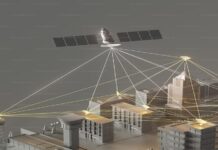The recently established US ‘Disruptive Technology Strike Force’, designed ‘to thwart the illegal acquisition of sensitive US technology by adversarial nations’, triumphantly disclosed its initial indictments this week. Out of the five indictments, two were related to purported thievery of US software, intended for delivery to Chinese businesses, while another implicated a Chinese procurement network established to supply Iran with materials for creating weapons of mass destruction.
Assistant Attorney General Matthew Olsen from the Justice Department’s National Security Division, stated that the charges announced represented the Justice Department’s unwavering commitment to protecting valuable US technology from being misappropriated by foreign adversaries, notably Russia, China, and Iran. Furthermore, he emphasized their firm stance against any breaches of US law, which could potentially allow autocratic regimes and adversarial nations to exploit high-tech solutions to compromise US national security and undermine democratic principles on a global scale.
Regardless of the debatable usage of terms such as ‘autocratic’ and ‘democratic values’, the inception of this military-style strike force marks an evident escalation in the US’s ongoing confrontation with the Chinese tech industry, while simultaneously taking aim at other adversaries. The significant amount of inadvertent harm being caused in this process is considered an unfortunate but tolerable aspect of this campaign, as US entities continue to express concerns over the unintended fallout.
The reach of this campaign includes any nation that desires to remain in good standing with the US. Earlier in the month, EU joined the US in pressuring Malaysia about potential involvement of Huawei in its 5G networks. South Korea is also experiencing pressure to deter its globally leading memory chip manufacturers from selling to China, with recent reports indicating the country is striving to appease the US by discouraging its tech workers from joining Chinese companies. The same source deliberates on the precarious balancing act Volkswagen is undergoing to trade with China without falling afoul of any regulations.
The US is all too familiar with the broad array of largely negative unintended consequences that prohibition efforts entail. The formation of the Disruptive Technology Strike Force signifies the US’s commitment to obstruct China’s tech sector from operating within its sphere of influence. Thus, this mutually detrimental game of cat and mouse is set to persist, with each new evasion of its discretionary regulations responded to by yet another controlling action from the ever-growing US state.




















